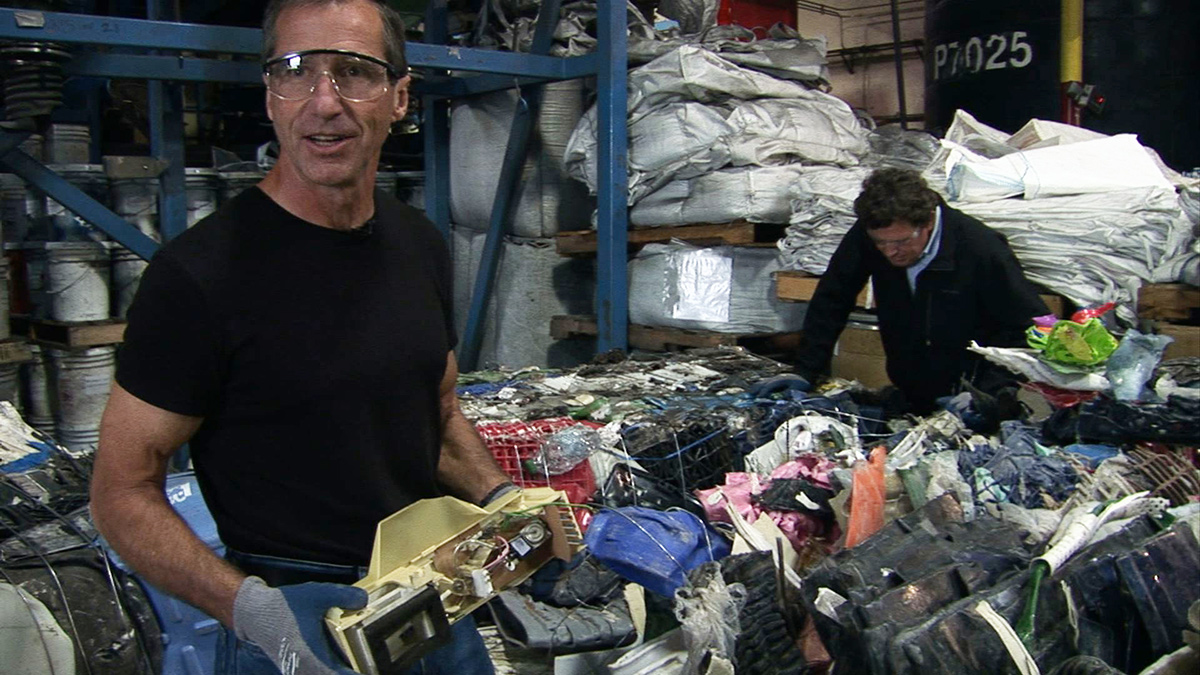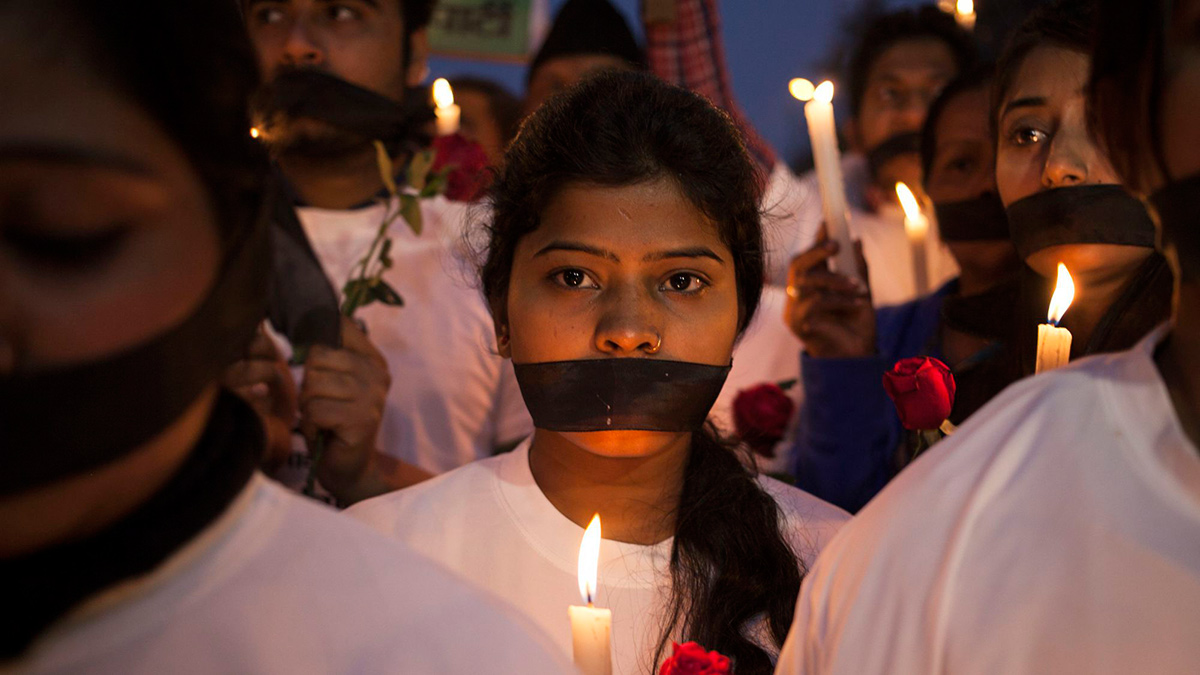
Despite being one of the oldest documentary film festivals in the US, the recently concluded United Nations Association Film Festival (UNAFF) was a new experience for this old San Francisco Bay Area film festival hand. Now in its 18th year, UNAFF presented 60 documentaries, all representing the festival's stated themes of "human rights, the environment, protection of refugees, famine, homelessness, racism, disease control, women's issues, children, universal education, war and peace." The ten days of the festival organized the films into 25 sessions held in Palo Alto (half at city venues, half at Stanford University), its less prosperous neighbor East Palo Alto and one in San Francisco. Founder and executive director Jasmina Bojic, who teaches documentary film at Stanford, introduced all the sessions that I attended and conducted the panels and Q&As that accompanied each session.
This is a tall order, but the spirited Bojic is up to it. She founded UNAFF (with the participation of Stanford Film Society and the United Nations Association Midpeninsula chapter) in 1998 to commemorate the 50th anniversary of the signing of the Universal Declaration of Human Rights. Eleanor Roosevelt, her inspiration, was the driving force behind its drafting. This year's festival theme, "Running Out of Time," reflects the urgent nature of the eight Millennium Development Goals that the UN adopted in 2000 and which are expiring by this year. They are being replaced by the 17 Sustainable Development Goals.
How does UNAFF strive toward these wide-ranging and ambitious goals, which include ending poverty, achieving gender equality and combating climate change? The year-round aspect of the festival stages programs for children, seniors, veterans and women. Each of October's 25 sessions addresses some aspect of the goals by showing documentaries sandwiched by panels and audience discussions. I attended a lively and emotional session at a college prep high school in East Palo Alto, dominated by students of color. There, UNAFF screened Catherine Wigginton Greene's I'm Not Racist . . . Am I?, which follows a dozen New York City students in a year-long workshop as they struggle to learn how to talk about race and racism. Through activities and games and undeniably painful confrontations, they gradually break through our society's rigid and hidden obstacles to acknowledging systemic racism and make contact. This film had a powerful effect on many of the young audience members, who then tearfully shared their own experiences in the Q&A.
I asked Bojic how she manages to draw audiences to UNAFF during a busy festival season in the Bay Area, not to mention amid the recent surge in documentary film festivals overall. "We always look to tradition," she notes. "We have been what we wanted to be from the beginning: a purely documentary film festival with an educational element. We have panels, bringing together communities as a laboratory, dealing with issues that disturb us. Bringing the filmmakers and subjects to audiences is one value that is different from other film festivals. With other film fests, you're in and out and you forget what happened. We stay deeply connected to our film subjects."
How do they choose from the huge pool of submissions on dire and urgent subjects? The old way, says Bojic: "We get 600 to 700 docs from all over the world. We select them with 30 jury members, who review the films for approximately six weeks in different groups, not through a programmer who chooses them by going from one film festival to another. Our jury members represent diverse communities and include journalists, teachers, other filmmakers. We still meet in groups. Of course we can screen the films online, but seeing them together and discussing them is of a whole different order from watching them privately in little batches between household errands. It's a completely different thing."

The documentaries I screened online were solid choices that touched on all kinds of wrongdoing in the world. Yael Melamede's (Dis)Honesty —The Truth About Lies is a slick, fascinating exploration of what makes people lie, cheat and steal, according to the research of Duke professor Dan Ariely. In his behavioral economics experiments with ordinary people, we discover the way they rationalize good and bad decisions concerning honesty. These discoveries align with scandals we all remember from the headlines: doping in competitive cycling, false media campaigns, faking résumés for major jobs, misrepresenting one's home address to get into a coveted school, insider trading, infidelity through Ashley Madison and so on—things that ordinary citizens have done, as well as abusers of greater power.
Documentaries set in the Bay Area dramatize both the tragedies and possibilities of our daily lives. A brief, if profound, standout is Elizabeth Lo's nine-minute Hotel 22, about a Silicon Valley bus that ferries passengers by day and provides a hotel for the homeless by night. I was unexpectedly moved by Christopher Beaver's Racing to Zero: In Pursuit of Zero Waste, which takes us to the dirtier side of San Francisco, a city that has pledged to achieve zero waste by 2020. We get extensive looks at the garbage facilities and recycling centers of the city but also see how the goal of transforming trash, not landfilling it, inspires every other aspect of life.
Two consecutive sessions I attended were at the Stanford Medical School building; they dealt with the related issues of women's reproductive rights, campus sexual assault in the US and rape in India. Diana Whitten's debut feature Vessel focuses on Rebecca Gomperts, an activist who fights against poor planning and official resistance to realize the novel idea of providing abortions to women on a ship in international waters. Lisa F. Jackson's It Happened Here tells the shocking stories of the "rape culture" of respected American educational institutions such as the University of Connecticut, Amherst College and Vanderbilt University and the ways their administrations shift the blame onto victims of campus rape. Leslee Udwin's devastating India's Daughter, which won the UNAFF Grand Jury Award for Best Documentary, details the 2012 gang rape and eventual death of a college student on a bus in New Delhi that galvanized the nation and provoked demonstrations in several cities. Despite the horrific stories of injustice, the films leave viewers with the impression that men and women are fighting back even in communities where patriarchal structures are firmly entrenched.
The films, free-wheeling panel discussions and spirited audience participation left me with the feeling that the audience is fully engaged, questioning and ready to act. She doesn't look tired yet—far from it—but I'm hoping that Jasmina Bojic is marshaling a staff that will keep UNAFF going long past its illustrious 18 years when she is finally ready to retire.
Frako Loden is adjunct lecturer in film, women's studies and ethnic studies at California State University East Bay and Diablo Valley College. She also reports on film festivals for Fandor.
